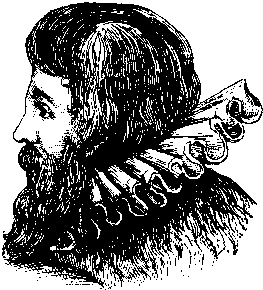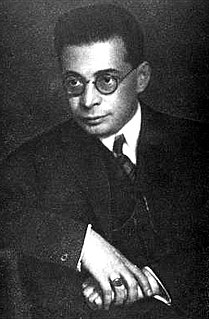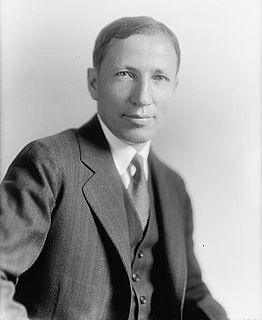A Quote by Roger Ascham
A man, groundly learned already, may take much profit himself in using by epitome to draw other men’s works, for his own memory sake, into short room.
Related Quotes
No man is so foolish but may give another good counsel sometimes; and no man is so wise, but may easily err, if he will take no others counsel but his own. But very few men are wise by their own counsel; or learned by their own teaching. For he that was only taught by himself had a fool to his master.
Man works primarily for his own self-respect and not for others or for profit. . . the person who is working for the sake of his own satisfaction, the money he gets in return serves merely as fuel, that is, as a symbol of reward and recognition, in the last analysis, of acceptance by ones fellowmen.
No man with a genius for legislation has appeared in America. They are rare in the history of the world. There are orators, politicians, and eloquent men, by the thousand; but the speaker has not yet opened his mouth to speak who is capable of settling the much-vexed questions of the day. We love eloquence for its own sake, and not for any truth which it may utter, or any heroism it may inspire. Our legislators have not yet learned the comparative value of free trade and of freedom, of union, and of rectitude, to a nation.
The great passion in a man's life may not be for women or men or wealth or toys or fame, or even for his children, but for his masculinity, and at any point in his life he may be tempted to throw over the things for which he regularly lays down his life for the sake of that masculinity. He may keep this passion secret from women, and he may even deny it to himself, but the other boys know it about themselves and the wiser ones know it about the rest of us as well.
Man—every man—is an end in himself, not a means to the ends of others; he must live for his own sake, neither sacrificing himself to others nor sacrificing others to himself; he must work for his rational self-interest, with the achievement of his own happiness as the highest moral purpose of his life.
Man is the only Patriot. He sets himself apart in his own country, under his own flag, and sneers at the other nations, and keeps multitudinous uniformed assassins on hand at heavy expense to grab slices of other people's countries, and keep them from grabbing slices of his. And in the intervals between campaigns he washes the blood off his hands and works for the universal brotherhood of man - with his mouth.
Where no man thinks himself under any obligation to submit to another, and, instead of co-operating in one great scheme, every one hastens through by-paths to private profit, no great change can suddenly be made; nor is superior knowledge of much effect, where every man resolves to use his own eyes and his own judgment, and every one applauds his own dexterity and diligence, in proportion as he becomes rich sooner than his neighbour.
A good stylist should have narcissistic enjoyment as he works. He must be able to objectivize his work to such an extent that he catches himself feeling envious and has to jog his memory to find that he is himself the creator. In short, he must display that highest degree of objectivity which the world calls vanity.
[In] death at least there would be one profit; it would no longer be necessary to eat, to drink, to pay taxes, or to [offend] others; and as a man lies in his grave not one year, but hundreds and thousands of years, the profit was enormous. The life of man was, in short, a loss, and only his death a profit.
It must be for truth's sake, and not for the sake of its usefulness to humanity, that the scientific man studies Nature. The application of science to the useful arts requires other abilities, other qualities, other tools than his; and therefore I say that the man of science who follows his studies into their practical application is false to his calling. The practical man stands ever ready to take up the work where the scientific man leaves it, and adapt it to the material wants and uses of daily life.


































